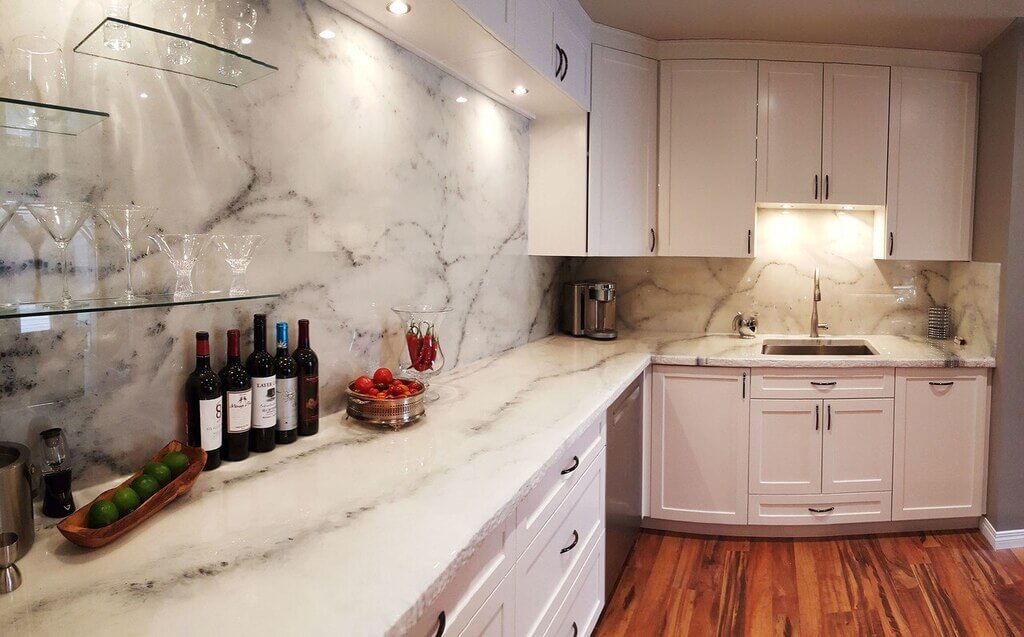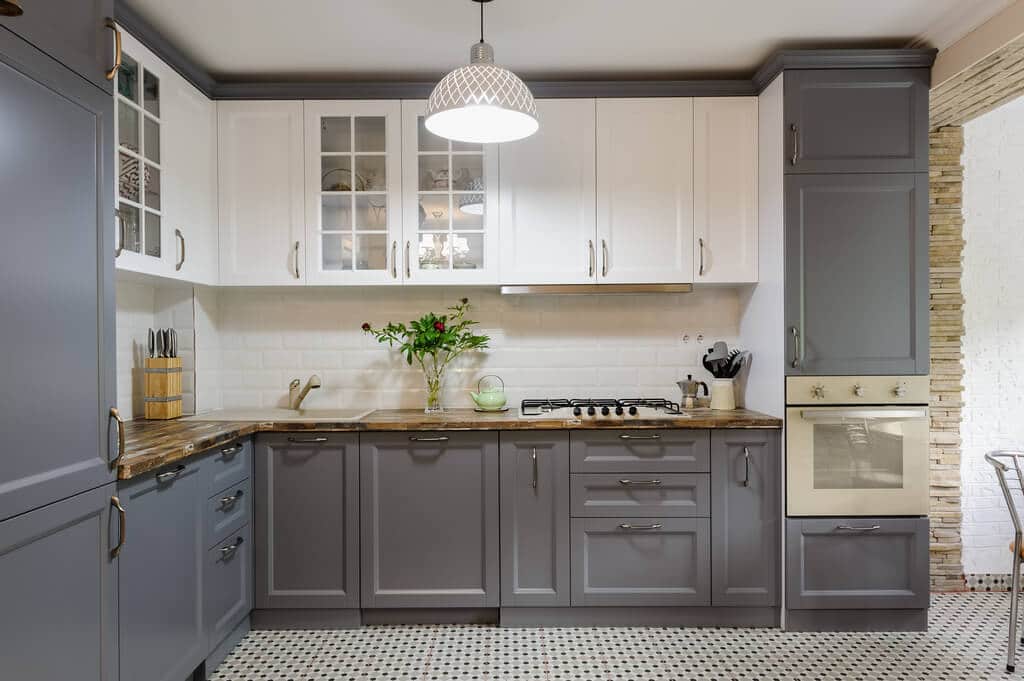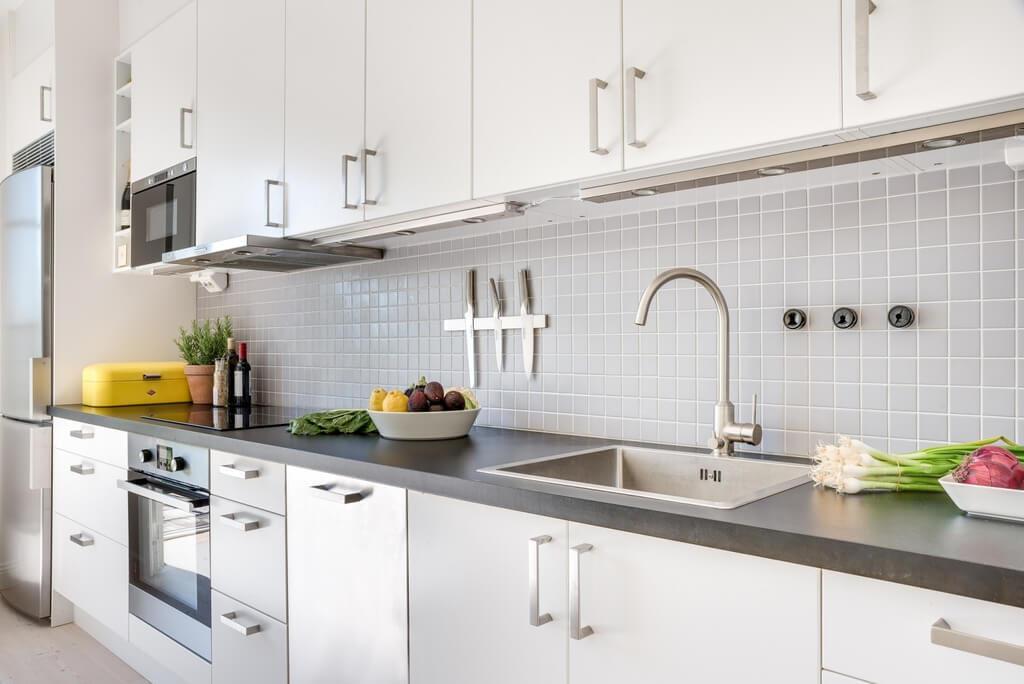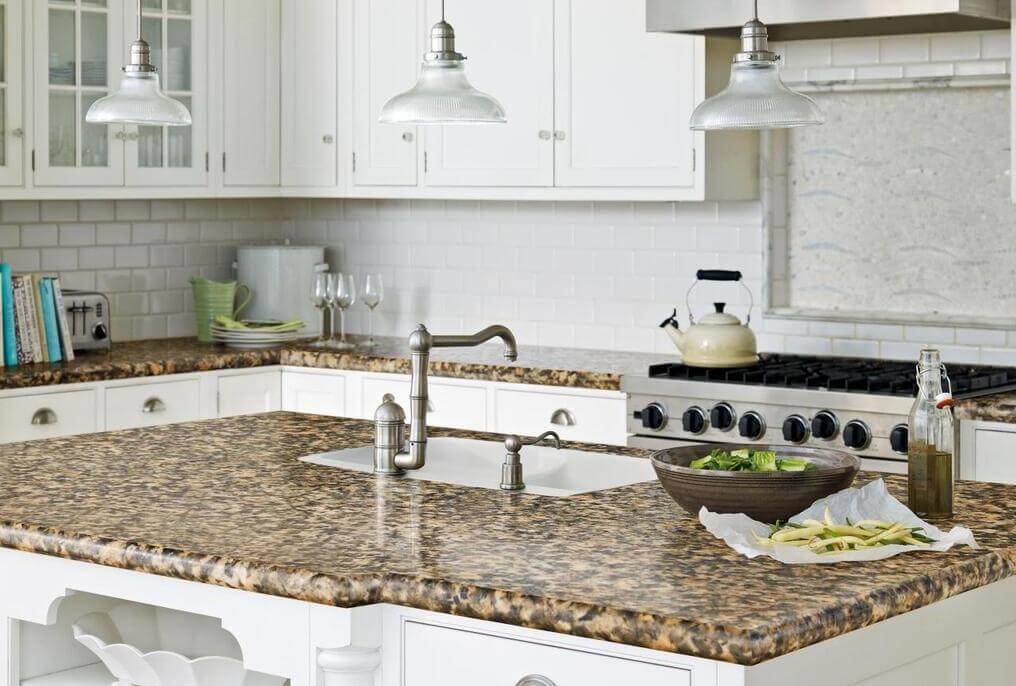If you want to add a protective finish to your countertops, epoxy, and polyurethane are among the best options. However, homeowners are often stuck between choosing one. Each of them has unique characteristics that can protect and improve the countertop’s texture. So today, we shall look into polyurethane vs epoxy usage in countertops and determine which one fares better for your dream designs.
Epoxy vs Polyurethane: Why Choose Epoxy?

Countertop designers like epoxy as it has a double benefit. Epoxy resin has two compounds: the resin and the hardening agent. When these two combine, a chemical reaction releases heat to bind the two and create a fortified solid.
Epoxy resin has been popular among interior decor professionals because of its multi-use properties.
If you are looking for countertops for aesthetic reasons, epoxy resin can be a sealant to coat the surface. By doing so, you can retain the countertop’s long shelf-life and not worry about damages.
Additionally, you can also use it as an adhesive. Being an effective bonding material makes it perfect for joining two materials. Cured epoxy resin bonds have long-lasting joints and can protect your creations for years to come.
You can also use resin to repair damaged countertops. You can use it to substitute or replace chipped or rotten surfaces. Its fortified base makes it as strong as the wood it replaces.
It is flexible, durable, and has multiple residential and commercial uses.
Check out Caesarstone to learn more about the advantages and disadvantages of epoxy countertops.
Epoxy vs Polyurethane: Why Choose Polyurethane?

Similar to epoxy, polyurethane is a dual-compound substance. It also has resin and a hardener. However, unlike epoxy, polyurethane has higher flexibility.
A well-known countertop material, polyurethane has multiple uses. For example, it can resist scratches on surfaces thanks to its impact absorbent properties. So if an object crashes against your polyethylene countertop, you can rest easy knowing no significant damage took place.
The coating can last for a maximum of 25 years. Its glass-like glossy finish over wooden surfaces adds a protective layer that can help sustain the countertop’s quality.
Because it’s transparent, polyurethane also makes for a favorite among countertop creators as it sustains the quality and adds an excellent finishing touch to all projects.
While it cannot substitute damages as epoxy does, it can fill up the cavities left on damaged countertops. It’s hard setting over damaged holes makes it a great repairing agent for new countertops.
As an adhesive, polyethylene can help bond the base and the countertop surface with ease.
Polyurethane vs Epoxy Countertop: Which One to Choose?
If you are renovating your kitchen interiors or setting up your new home, a countertop is necessary. Epoxy and polyethylene are two of the best choices out there. Let us look into a quick comparison to help you decide:
Price
In terms of the affordability of epoxy vs polyurethane, epoxy is a better choice if you are on a budget. Polyethylene can be a bit costly if you are a first-time buyer. So if you have a large countertop design to work with for your new home, epoxy can help you save construction expenses.
Durability
Bonding two materials with epoxy will be stronger than bonding with polyethylene. It is more robust and can withstand higher levels of compression. With such toleration to wear and tear, epoxy makes a countertop perfect for a kitchen with high traffic throughout the day.
Chemical Resistance

Both epoxy and polyethylene have different reactions to chemicals. For example, sulfuric acid reacts better with polyethylene than with epoxy. However, many chemicals react poorly with epoxy.
Keeping this in mind, if you need to use any solvents or chemicals on top of the counterpart, it is best to opt for polyethylene.
Adaptability
Epoxy works better over more surfaces than polyethylene. However, keep in mind that both epoxy and polyethylene work perfectly over wooden countertops. So if you have a wooden countertop, you can opt for either without a second thought about which one would be better.
Humidity Resistance
Even if you keep an epoxy countertop wet at all times due to cooking, it does no damage. That is the sign of epoxy resisting heat and water at all times for longer periods.
One thing about polyethylene in this scenario is its flexibility. Extreme temperatures cannot make it brittle or break it. Rather, it can rapidly heat up and cool down, making it flex. However, polyethylene is not water-resistant. As a result, it can hold liquid for longer periods, which can gather dirt and grime.
Flexibility Levels

Epoxy might be more durable and fortified in the long run, but polyethylene is flexible. It flexes with temperature, adapting to it rather than resisting.
Therefore, while epoxy does last for a long time, it can usually wear out after several years. However, polyethylene’s adaptability makes it last longer.
Curing Speed
Polyethylene cures faster than epoxy. So if you have any dents on your polyethylene countertop that need a quick fix, you need minimal time to wait for it to cure. It dries up quickly and can fix your countertop in no time.
However, this benefit can also turn messy if a large area of damage needs to be fixed or cured, and the polyethylene cures before forming the required shape.
Scratch Resistance
Both epoxy and polyethylene are scratch-resistant. There is no need to worry about random cracks or scratches from everyday objects.
Endnote
When deciding on polyurethane vs epoxy for countertops, it is important to note they both have their benefits and drawbacks but can be perfect choices depending on your preference.
When purchasing online, check if the countertop goes with your budget, interior decor ideas, and the surrounding temperature of your kitchen. Talking to a professional might help you decide better which material to pick.
Continue reading:-

